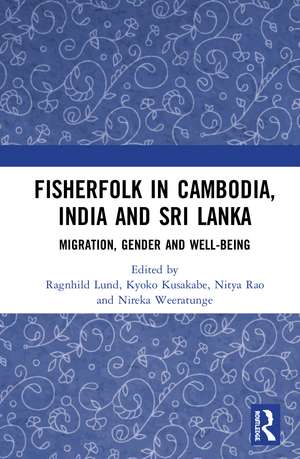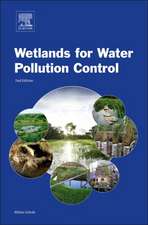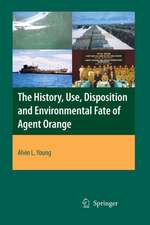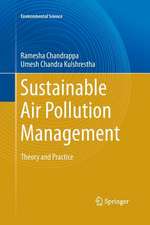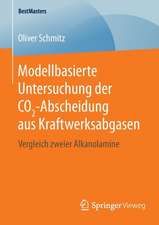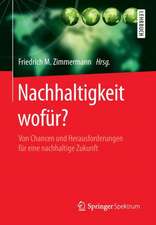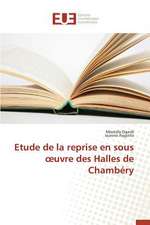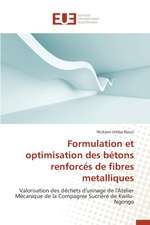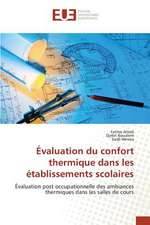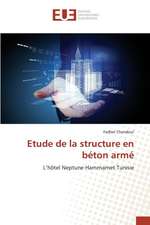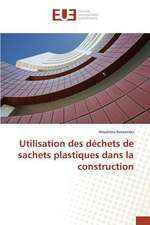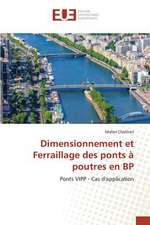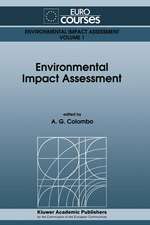Fisherfolk in Cambodia, India and Sri Lanka: Migration, Gender and Well-being
Editat de Ragnhild Lund, Kyoko Kusakabe, Nitya Rao, Nireka Weeratungeen Limba Engleză Hardback – 24 iul 2020
Fisherfolk in Cambodia, India and Sri Lanka presents a rigorously investigated account of the peoples and production systems of some of Asia’s most populated and contested but dynamic and productive coasts and floodplains. The book will be of importance to students and researchers of Asian studies, development studies, geography, sociology, migration studies, gender studies, and minority studies.
| Toate formatele și edițiile | Preț | Express |
|---|---|---|
| Paperback (1) | 389.66 lei 6-8 săpt. | |
| Taylor & Francis – 25 sep 2023 | 389.66 lei 6-8 săpt. | |
| Hardback (1) | 1001.84 lei 6-8 săpt. | |
| Taylor & Francis – 24 iul 2020 | 1001.84 lei 6-8 săpt. |
Preț: 1001.84 lei
Preț vechi: 1221.75 lei
-18% Nou
Puncte Express: 1503
Preț estimativ în valută:
191.75€ • 199.43$ • 160.69£
191.75€ • 199.43$ • 160.69£
Carte tipărită la comandă
Livrare economică 14-28 martie
Preluare comenzi: 021 569.72.76
Specificații
ISBN-13: 9780367030476
ISBN-10: 0367030470
Pagini: 252
Ilustrații: 50
Dimensiuni: 156 x 234 x 16 mm
Greutate: 0.5 kg
Ediția:1
Editura: Taylor & Francis
Colecția Routledge India
Locul publicării:Oxford, United Kingdom
ISBN-10: 0367030470
Pagini: 252
Ilustrații: 50
Dimensiuni: 156 x 234 x 16 mm
Greutate: 0.5 kg
Ediția:1
Editura: Taylor & Francis
Colecția Routledge India
Locul publicării:Oxford, United Kingdom
Public țintă
PostgraduateCuprins
1. Fishers on the move: Changing livelihoods, gendered entanglements and well-being 2. Migration for capital accumulation: Changing class dynamics among small-scale fishers on the Coromandel Coast, Tamil Nadu 3. Adapting to diminishing fish resources in Cambodia: Fisheries on the shoulders of women and migrating adult children in fishing communities 4. Seasonal migration, resource access, contestation and conflict among fishers on the west and east coasts of Sri Lanka 5. Female headship and exclusion from small-scale fishing in Eastern Province, Sri Lanka 6. To migrate or not: Social well-being and gendered household decision-making in fishing communities on the west and east coasts of Sri Lanka 7. Fishing in distant waters: Issues of identity and well-being amongst migrant fishers on the west coast of Tamil Nadu 8. Immobility of ethnic Vietnamese fishers and their adaptation strategy in Chhnok Tru village, Chhnok Tru Commune, Cambodia 9. Mobility in contexts of precarity: Kin solidarity and migrant networks among small-scale fishers in coastal Tamil Nadu 10. Mobilizing for and against migration: Gendered networks, cooperation and collective action in fishing communities on the west and east coasts of Sri Lanka 11. Gender and power struggle in community fisheries in Cambodia: Creating space for women’s leadership 12. Livelihoods, migration and mobility: The distribution of consumption expenditure in fishing communities in Cambodia, India and Sri Lanka 13. Small-scale fishers, mobility, and the politics of well-being in rapidly changing Asia
Notă biografică
Ragnhild Lund is Professor of Geography in the Department of Geography, Norwegian University of Science and Technology. Her research focuses on three broad areas: gender and development (livelihoods, body space, activism, rethinking and reproducing gender, gender-based violence); mobility and migration (mobile livelihoods, development-induced displacement, gendered mobility, indigenous people); and social geography (cultural encounters, youths, children, friends, house and home, post-war and post-disaster recovery). She has published extensively in international peer-reviewed journals and books, and has led several large research projects in Asia.
Kyoko Kusakabe is Professor of Gender and Development Studies, Department of Development and Sustainability, School of Environment, Resources and Development, Asian Institute of Technology (AIT), Thailand. Her main research interests are in gender and work, especially around labour migration, unpaid work and unpaid care work, and informal economy, as well as fisheries and aquaculture. She has worked extensively with other academics, as well as with local NGOs and groups, governments, and both international and UN organizations.
Nitya Rao is Professor of Gender and Development in the School of International Development, University of East Anglia, Norwich, UK. She has worked extensively as a researcher and advocate in the field of women’s rights, employment and education for over three decades. Her research interests include exploring the gendered changes in land and agrarian relations, and migration and livelihoods, especially in contexts of climatic variability and economic precarity. She has conducted fine-grained research on intra-household dynamics in these contexts to draw out implications for gendered well-being, with a focus on food and nutrition security. She has published extensively in international peer-reviewed journals and books.
Nireka Weeratunge is an anthropologist and research fellow at the International Centre for Ethnic Studies (ICES) in Colombo, Sri Lanka. Her main areas of research are the social and cultural aspects of natural resource use, focusing on gender and livelihood strategies in relation to poverty, vulnerability, well-being, and the resilience of rural households in fishing and farming communities. She has a PhD in anthropology from the University of Toronto, Canada.
Kyoko Kusakabe is Professor of Gender and Development Studies, Department of Development and Sustainability, School of Environment, Resources and Development, Asian Institute of Technology (AIT), Thailand. Her main research interests are in gender and work, especially around labour migration, unpaid work and unpaid care work, and informal economy, as well as fisheries and aquaculture. She has worked extensively with other academics, as well as with local NGOs and groups, governments, and both international and UN organizations.
Nitya Rao is Professor of Gender and Development in the School of International Development, University of East Anglia, Norwich, UK. She has worked extensively as a researcher and advocate in the field of women’s rights, employment and education for over three decades. Her research interests include exploring the gendered changes in land and agrarian relations, and migration and livelihoods, especially in contexts of climatic variability and economic precarity. She has conducted fine-grained research on intra-household dynamics in these contexts to draw out implications for gendered well-being, with a focus on food and nutrition security. She has published extensively in international peer-reviewed journals and books.
Nireka Weeratunge is an anthropologist and research fellow at the International Centre for Ethnic Studies (ICES) in Colombo, Sri Lanka. Her main areas of research are the social and cultural aspects of natural resource use, focusing on gender and livelihood strategies in relation to poverty, vulnerability, well-being, and the resilience of rural households in fishing and farming communities. She has a PhD in anthropology from the University of Toronto, Canada.
Descriere
This volume studies the coastal and riparian fishing communities of three Asian countries – Cambodia, India and Sri Lanka. It explores issues of migration and movement, gender relations, wellbeing, and nature-society relations common among these communities.
